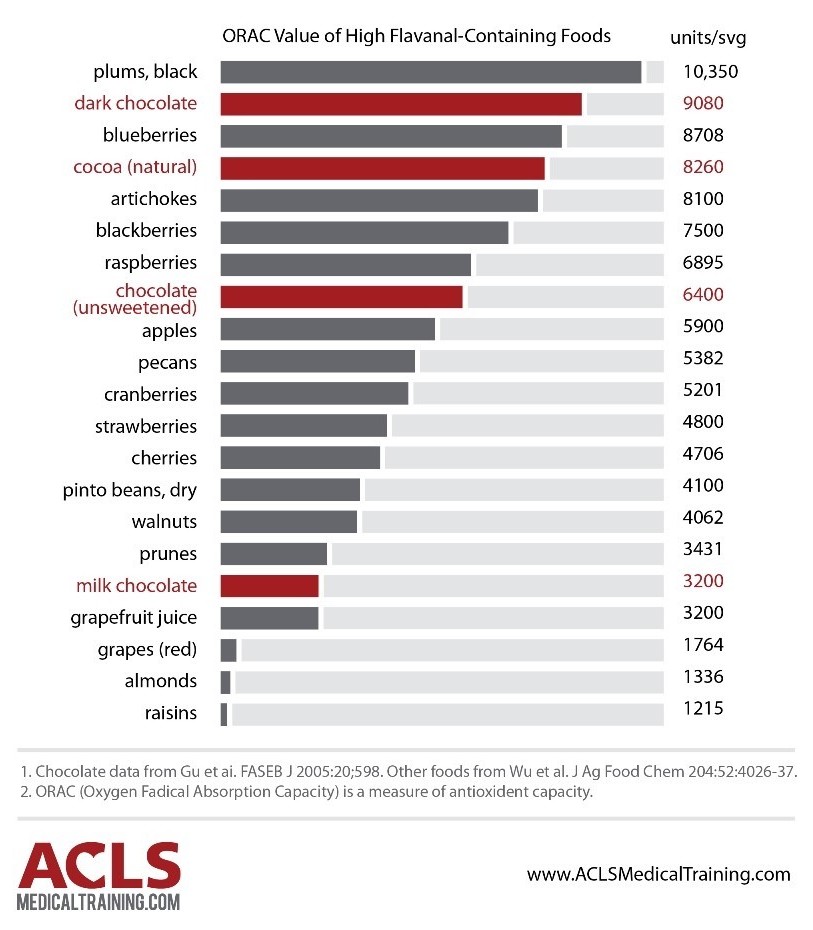Chocolate and Heart Health: Yes, It’s Actually Good For You
Chocolate: the ultimate guilty pleasure. Chocolate is the candy you fit into your daily allotment after a long day of counting calories and working out. You’ve heard people say that chocolate is full of “anti-oxidants”, but that’s just an excuse to eat more, right? In reality, chocolate is more than just candy. Chocolate is packed with nutrients and scientists agree that it actually might be good for you.
Chocolate, by the numbers
Let’s start with the benefits. Chocolate is dense in nutrients. A typical dark chocolate bar contains 2 grams of fiber and 1.4 grams of protein, which help you feel full and keep you feeling full longer. Caffeine is also present – about 12 grams – so chocolate can give you a little boost of energy and alertness. The same serving size contains 12% of daily iron and 10% of daily magnesium requirement. Magnesium is an antioxidant, meaning it binds to and neutralizes free radicals that can damage the regeneration of cells in the body. Free radicals can cause LDL, or “bad” cholesterol, to form plaque in the arteries, increasing risk for heart attacks. Dark chocolate has been shown to improve circulation and lower blood pressure. Cocoa is rich in flavanols, which are associated with cardiovascular health.

What about sugar and diabetes?
Dark chocolate has a low glycemic index – generally in the 20s – meaning your body takes longer to metabolize the sugars it contains, so it will not spike your blood sugar and cause you to crash after. This effect is thought to be the reason behind chocolate’s beneficial effects on insulin resistance, which is a precursor to Type II Diabetes. This also contributes to why chocolate can make you feel fuller longer and reduces carbohydrate cravings.
Not all chocolate is the same (Darker = Better)
Not all chocolate is this good for you. Notice that these benefits are specifically for dark chocolate. A good dark chocolate is greater than 65% cacao, with few additional ingredients. Milk chocolate has some of the same benefits as dark chocolate, but a smaller percentage of cacao, which is the beneficial ingredient. White chocolate is more like a chunk of sugar and fat—not at all the same as milk or dark chocolate and does not help the heart.
Trans fats are definitely not heart healthy
Most of the fats in dark chocolate are “good” fats: monounsaturated fats and stearic acid. These fats contribute to heart health. Milk chocolate can also contain added fats that are not seen as beneficial, such as trans fat. Check the ingredients to make sure there are no added oils other than “cocoa butter” to minimize your intake of these potentially harmful fats.
What if I like a little something in my chocolate?
Fruit and candy additives like cherries or toffee will increase the calories of the chocolate and reduce the benefits. Even fruit additives usually also increase the sugar levels in the treat and work against heart health. On the other hand, nuts, such as almonds or cashews, are good for your heart and can increase the feeling of fullness. If nuts help improve the taste of dark (high percentage cacao) chocolate, go for it!
I want to eat chocolate at every meal!
Hold on, there. Of course, all these benefits don’t mean you should replace your breakfast with a chocolate bar. Chocolate is dense in fat, so it is also very calorie dense and should be eaten in moderation. At a certain point, the health risks of consuming excess fat and calories outweigh the heart health benefits of chocolate. Follow serving sizes on packages and limit yourself to one treat per day. Fortunately, dark chocolate is so rich that you likely won’t want to exceed the suggested serving size and will feel satisfied with your heart healthy snack.
Reference
http://my.clevelandclinic.org/services/heart/prevention/nutrition/food-choices/benefits-of-chocolate
http://circ.ahajournals.org/content/119/10/1433.full
https://www.chocolove.com/chocolate/extra-strong-dark-chocolate-77-cocoa.html